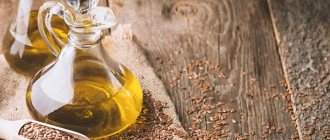Features of the action of dill water
Dill water was used to relieve constipation by great-great-grandmothers. Even then it was noticed that dill and fennel have the following properties:
- Antimicrobial.
- Antispasmodic.
- Sedative.
- Reducing gas formation.
Resolving the problem of stool retention occurs by eliminating spasms in the intestines and removing accumulated gases.
Dill water has proven itself to be excellent for treating constipation in children.
This remedy also helps get rid of:
- Colic in infants.
- Abdominal pain associated with improper functioning of the gastrointestinal tract.
- Distension of the intestines from gases and collected feces.
Dill water helps improve breast milk lactation.
This quality can be used to prevent constipation in a baby. Among the features of the action of such a drug is its cumulative effect. Dill water begins to show its medicinal qualities on the third or fourth day of constant use of the product.
Where can the product be purchased?
You can buy dill water at almost any pharmacy. It is sold in small bottles of 15, 25 and 100 ml. The jars contain a concentrate that must be diluted in drinking water. Please note that pharmacies also have herbal tea, which is also called “dill water”, it is in filter bags, it is convenient to brew. The methods and dosages for tincture and tea are different; carefully read the instructions for use.
You can order delivery of this tincture in Moscow and St. Petersburg from a pharmacy to your home by filling out and paying for the application directly on the website. Or by visiting the pharmacy in person, where the pharmacist will select the right dosage for you. The cost of dill water depends on the volume. Price in Moscow and St. Petersburg from 188 rubles. The product is not expensive, it is used not only to treat existing problems, but also to prevent recurrent disorders of the gastrointestinal tract.
Traditional methods of treating gastrointestinal problems have gradually moved onto the shelves of pharmacies, and this indicates their effectiveness. Before using drug treatment, which often leads to unpleasant consequences, you need to try gentle treatment with minimal risks. Dill water will safely help you and your baby with constipation and abdominal cramps.
Preparation of dill water
You can buy dill water to combat constipation at the pharmacy. But if you have a few free minutes, you can prepare this medicine yourself at home.
There are several ways to prepare the drug. In various literature there is a recipe for preparing water from dill essential oil. Finding such a component is quite difficult due to the lack of confidence in its 100% quality.
Dill water prepared at home should be used within one day.
Video
Method No. 1
- For preparation, it is recommended to take dill or fennel seeds.
- Rub them thoroughly.
- Boil one glass of water.
- Pour boiling water over the seeds.
- Cover with a lid and leave to steep for one hour.
This proportion is designed for newborns. To treat adults, you need to take a double dose of seeds.
Method number 2
- Place one teaspoon of seeds in a thermos.
- Pour half a liter of boiling water.
- Leave for one hour.
- Then strain and take.
How to use?
When treating constipation with dill water, it is recommended to adhere to certain rules. Depending on who suffers from constipation, the appropriate doses are prescribed:
- For newborns with constipation, give one teaspoon one to six times during the day.
A similar laxative can be given before the next feeding. At the same time, it is recommended that nursing mothers drink 2-3 tablespoons of water. If the child is already receiving complementary foods, then dill for constipation in the form of a tincture can be mixed with his food.
- For adults, the recommended dose of dill water is ¼ cup. You should drink it 20-30 minutes before meals.
Doctors remind that constipation in adults is chronic. Treating these symptoms in the older generation with dill may not yield positive results.
Constipation in newborns
Recently, our pediatricians have been increasingly consulting parents on the problem of constipation in newborns. Answers to the most frequently asked questions are given by our amazing pediatrician GALINA VALENTINOVNA BELOVA.
During the first year of life, all organs of children continue to develop. The digestive system of a newborn is no exception. This raises many questions for parents. Colic, gas formation, rashes, diarrhea - all this is due to the unimproved functioning of the child’s digestive system. The main problem with all this is that the newborn may be constipated.
Constipation is a problem that requires immediate solution. After all, when feces remain in the body for a long time, the process of absorption of toxins from them occurs, which can greatly affect the state of health. And besides, constipation causes pain in the tummy in children, as gas accumulates, and also causes discomfort during bowel movements.
Therefore, the participation of adults in solving this problem is simply necessary. In order to solve it, it is necessary to establish the cause of constipation.
Normally, a healthy newborn baby should have bowel movements up to 4 times a day, and closer to a year - 2 times. If a breastfed baby does not “go to the toilet in a big way” within one day, this is not yet a reason to worry and start looking for a reliable remedy for constipation in the medicine cabinet. It is said that a newborn baby is constipated when he cannot have a bowel movement, he begins to sulk and try to poop, constantly cries with a shrill cry, sleeps restlessly and refuses to eat.
Some experts say that constipation in a baby can be a consequence of swaddling too tightly. It should be noted that there is some truth in this statement: lack of physical activity affects the functioning of the intestines.
So: let’s designate the CAUSES OF CONSTIPATION
When breastfeeding, constipation in a newborn can be caused by a number of factors:
PHYSIOLOGY OF A CHILD, that is, his digestive system, which we already mentioned above. The thing is that it is still imperfect and is not able to completely digest food, as a result of which unsold products and toxins are not removed from the body. This leads to slow movement of food through the intestines, which causes an accumulation of stool, which leads to constipation.
MOTHER'S DIET. When breastfeeding, constipation is a completely normal phenomenon, because the baby daily eats through milk the foods that the mother ate throughout the day. Therefore, constipation in children is often caused by a woman’s poor diet. Perhaps you should reconsider your diet and try to eat the following foods:
- a salad of fresh vegetables containing dill, parsley, seasoned with vegetable oil, and preferably olive oil.
- porridge (buckwheat, oatmeal, pearl barley)
- soups with vegetable broths.
- white poultry meat.
- prunes, dried apricots.
- natural fermented milk yogurt and kefir.
SUPPLEMENTING A CHILD with dry milk formulas while breastfeeding can also cause constipation in a newborn. Firstly, a restructuring of the body begins, because there is a change in the baby’s diet, which even in an adult can cause problems with bowel movements. Secondly, such mixtures do not contain beneficial bacteria that “help” the body digest food. Therefore, CONSULTING A PEDIATRIC IS MANDATORY, and only on the basis of the doctor’s recommendations can you try to introduce special mixtures into the child’s diet that help with constipation.
A CHILD'S immobility can also cause constipation in a newborn during breastfeeding. Try to place your baby on his tummy more often, play with his legs, doing the “bicycle” exercise. Before eating, give him a tummy massage, this will improve the digestive system and prepare the child’s body for eating. However, it needs to be done in about 10–15 minutes.
LACK OF FLUID IN THE BODY is another reason that can cause constipation during breastfeeding in a baby. Give your baby plenty of water, and if he refuses it (which happens very often), try to drink more liquid yourself.
What are the SIGNS of CONSTIPATION in a newborn?
When children are worried about something, they try to show it with all their appearance. Constipation in infants manifests itself as follows:
* the appearance of a small amount of blood on the diaper, caused by the formation of wounds during the passage of stool through the anus; feces that are not typical for a newborn baby are hard;
* emptying occurs once a day or is absent altogether;
* the baby often arches his back, and his tummy becomes hard;
* the baby constantly pushes and pulls his legs towards his tummy;
* the child becomes restless, constantly whines, is capricious and refuses to eat.
HOW TO HELP YOUR BABY WITH CONSTIPATION?
First of all, CONSULT YOUR DOCTOR and follow his recommendations. There are not many reasons for constipation during breastfeeding in children. To eliminate it, it will be enough to increase the child’s mobility, as well as change the diet of the nursing mother. However, sometimes this is not enough, and then you have to take some measures to eliminate constipation. Firstly, you can give your child a massage in a warm bath (water relaxes the muscles), placing your hand on his tummy and, lightly pressing on him, make circular movements. Then you should bend the baby’s legs at the knees and press them to the tummy, then straighten them and press them again. After such procedures, the baby should have a bowel movement. You can also give your baby an enema or put a glycerin suppository. These remedies are the most effective, but you should not use them often, since the intestines will get used to this method of emptying, as a result of which they will no longer perform their functions fully. If constipation in a newborn is accompanied by increased gas formation and causes colic, you can give the baby dill water or baby fennel tea. Consultation with a doctor is necessary in any case, especially if children are often bothered by constipation. Perhaps the reasons for their formation lie much deeper and a full examination of the body will be required.
We would like to remind you that if you have any questions related to your child’s health, nutrition, sleep and wakefulness, you can contact our pediatricians or call a doctor at home.
We wish your children and you good nights, light tummies and a wonderful appetite!
Can dill water strengthen?
Many people wonder whether dill water weakens or strengthens, can cause constipation. These doubts are explained by the fact that the effect of the drug is not immediate. A pronounced laxative effect occurs after three days of use.
Gastroenterologists unequivocally answer that water based on dill seeds is not capable of strengthening. This product is of plant origin and its effect is gradual. In the same way, the functioning of the gastrointestinal tract occurs.
Some people are scared by the green color of their stool after taking dill infusion. Doctors say that this reaction of the body manifests itself in response to intestinal dysbiosis. And drinking fennel water cannot cause changes in the color of stool.
Precautionary measures
A remedy for constipation based on dill or fennel seeds is well tolerated by both children and adults. The only problem may be an allergy to the components of the drug.
The manifestation of a negative reaction of the body to dill can manifest itself:
- Rashes on the skin.
- Itching.
To avoid this, it is recommended to adhere to the following rules:
- Treatment of constipation with dill water should begin with small doses. This is especially true for newborns.
- It is recommended to prepare dill or fennel tinctures strictly in accordance with the indicated dosages.
- There is no need to take dill water for more than ten days in a row. After 7-15 days, you can repeat the course of treatment.
- Before using the drug, it is recommended to check the body’s reaction to it and only after a positive effect begin full treatment.
Is everyone allowed?
Pediatricians prescribe dill water at the first symptoms of colic. This drink is of plant origin and cannot physically harm you. The only reason for concern is an allergic reaction.
The allergy is usually expressed in the form of slight redness, rashes on the skin, and may be accompanied by itching. To avoid this, newborns begin to give the tincture from 1 small spoon, gradually increasing the volume. You also need to consider the dosage when preparing the solution. Long-term use, like the use of other agents, is not recommended.
In some situations there are restrictions on the use of this harmless drug:
- Low pressure.
- Stomach ulcer with high acidity and gastritis.
- Tendency to bleed.
- On the days of menstruation.
What are the restrictions for infants and newborns?
Although dill water very rarely causes an allergic reaction, it is best to give it to a newborn for constipation and colic after consulting a doctor. The pediatrician will examine the baby and rule out the presence of more serious diseases for which this treatment method will not be suitable.
Dill water is contraindicated for infants who:
- Inflammation of the gastrointestinal tract.
- Problems in the rhythm of feeding.
- Allergy to fennel, inherited.
- Jaundice.
Together with dill water, you need to add more plain water to your baby’s diet. The tincture has a diuretic effect , and plain water will prevent dehydration.
Read all about the use, benefits and harms of dill water for children here.
Reviews
Reviews about the use of dill water and the resulting effect can be found on forums on the Internet. Here you can find recommendations on the proper preparation and use of the drug for constipation for adults and infants.
Anastasia, Kursk: “We started taking dill water on the advice of a friend. The drug is natural, freshly infused herb cannot harm my boy. A day later, I noticed that my child became much calmer and stopped being capricious. There is no trace left of colic and constipation.”
Ivan, Ufa: in a reference book on medicinal herbs I came across information about dill water. The healing properties of the herb extended to improving the functioning of the gastrointestinal tract. I decided to test the information I received for myself. I drank fennel tea every day. After a week, I noticed that there was practically no gas formation, and bowel movements occurred regularly.
Anna Petrovna, Ryazan: “My daughter drank dill water while feeding her son. A pediatrician at our children's clinic told us how to take it. The baby had no colic or other problems with the ventricle. She always had enough milk.”
Will it help with intestinal problems?
A spasm occurs in the intestines, and the walls become tense, causing obstruction. Dill water eliminates this disease and the associated discomfort, which leads to colic. The effect of the water begins half an hour or an hour after administration , gradually affecting the gastrointestinal tract.
For an acute problem with constipation, when immediate help is necessary, it is better to use stronger medications. Dill water helps prevent these problems by gently affecting the intestinal mucosa.
You can improve the functioning of the gastrointestinal tract in a newborn through the milk of a nursing mother , when the mother drinks the tincture herself, and the child receives the active ingredients. When nursing women drink dill water, the flow of milk increases. Tincture of “pharmaceutical dill” is often prescribed to women to improve lactation in the first weeks of feeding. Read about the benefits and harms and use of dill water for a nursing mother here, and we talked about the preparation and effects of dill water on women here.











